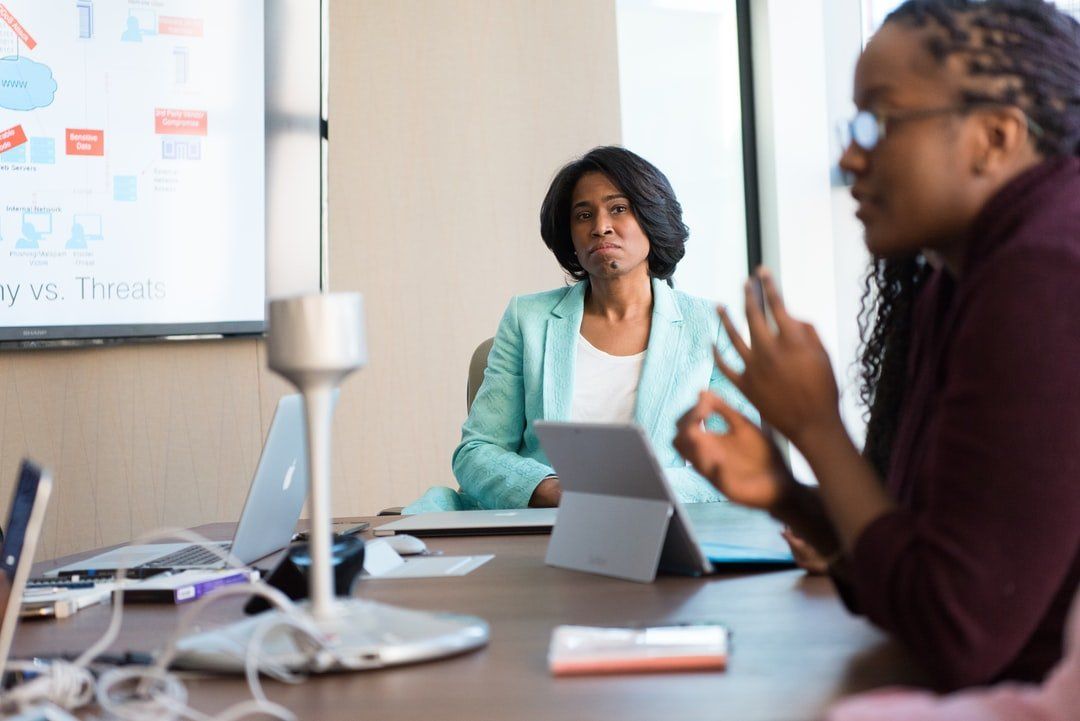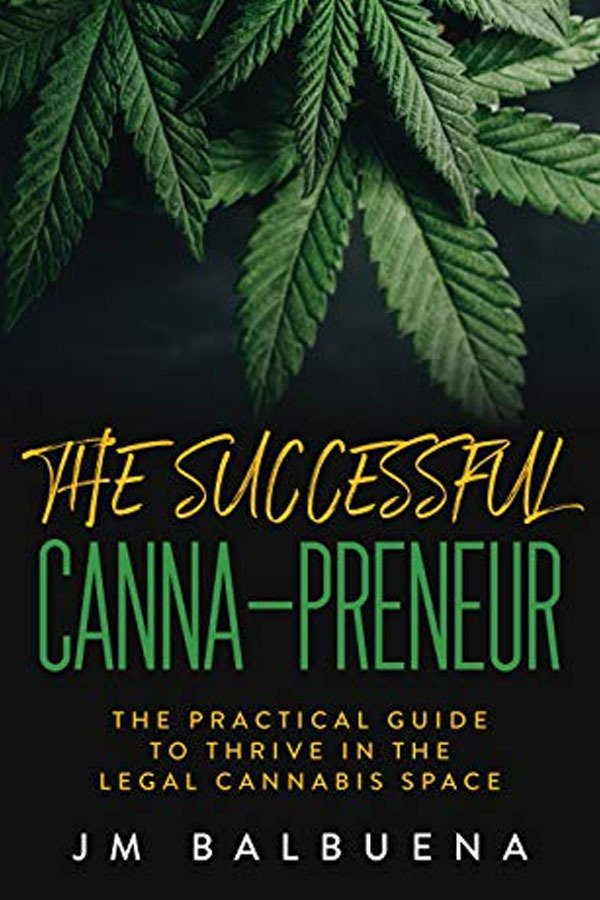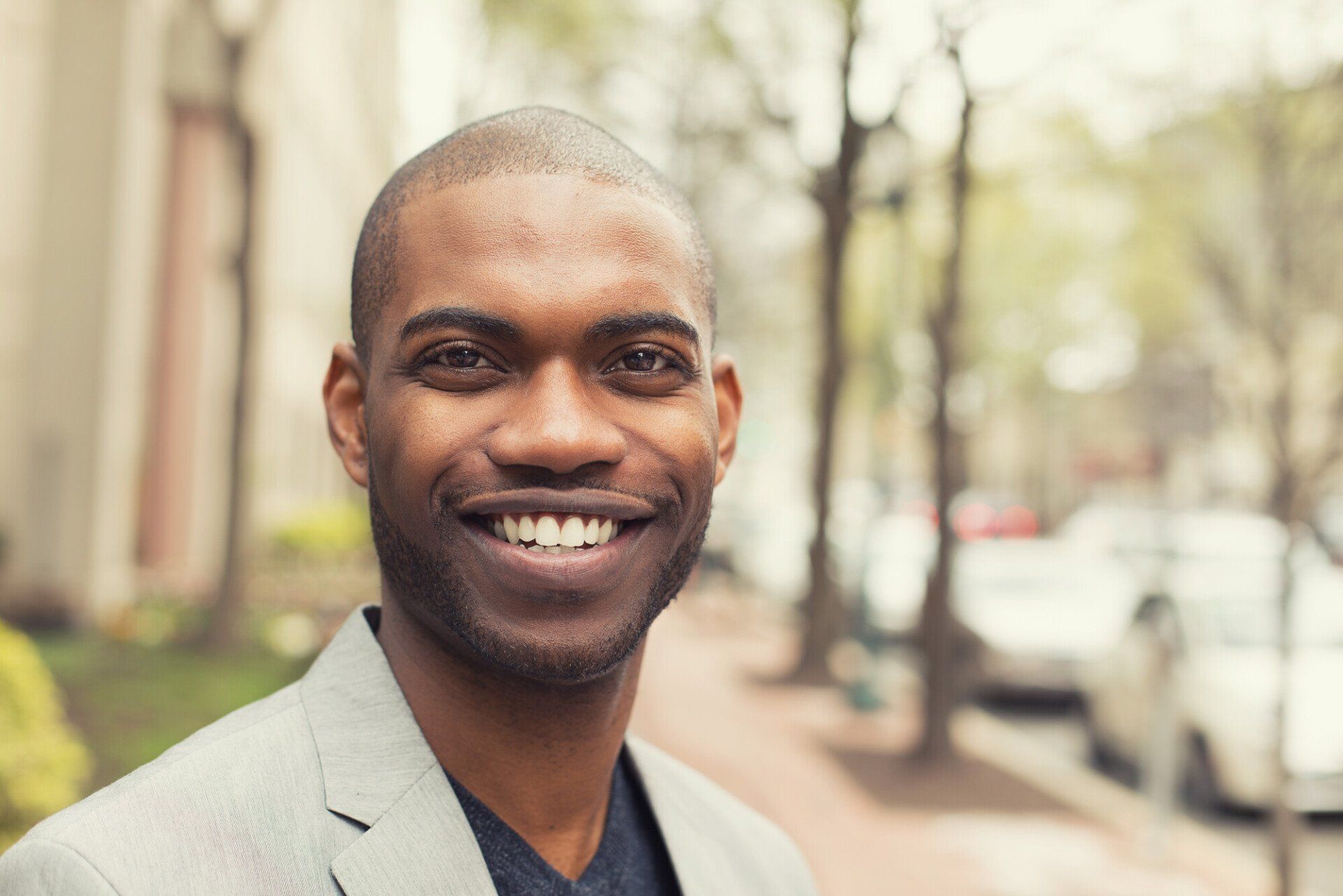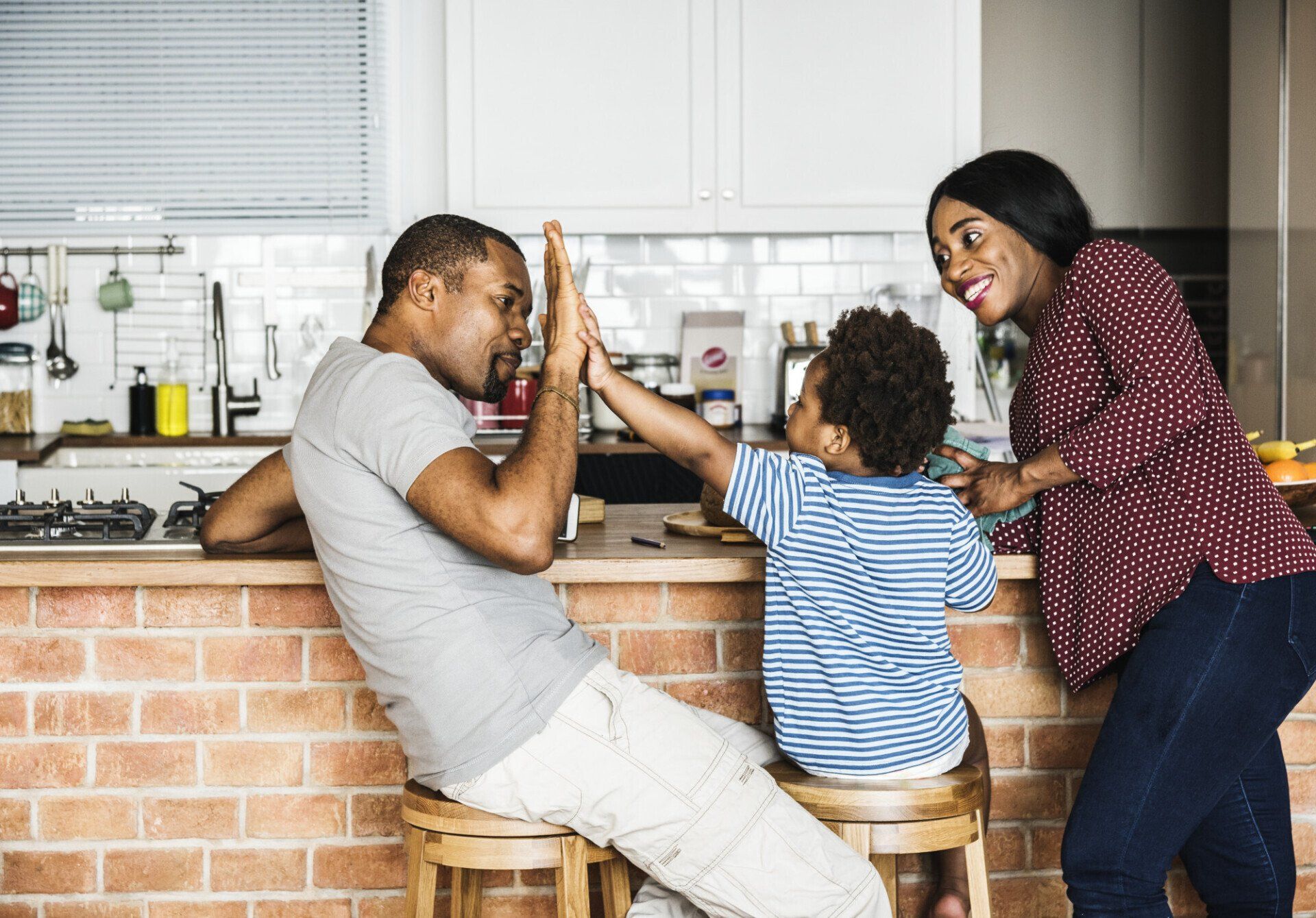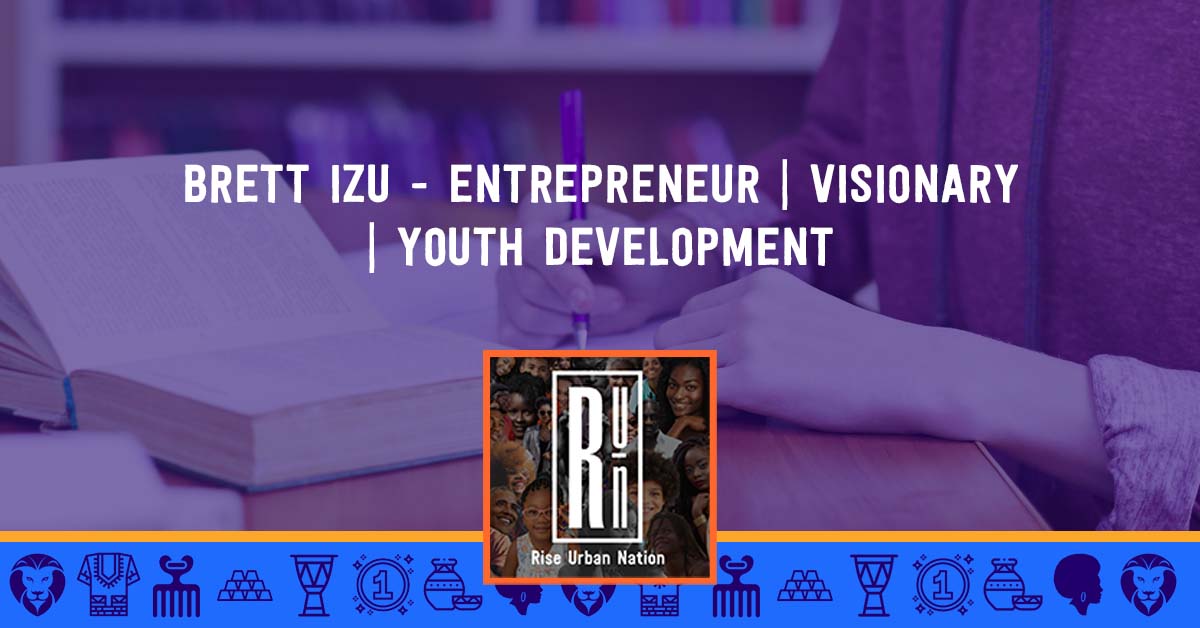Johann Balbuena - Author | Entrepreneur | Cannabis Advocate | US Navy Vet
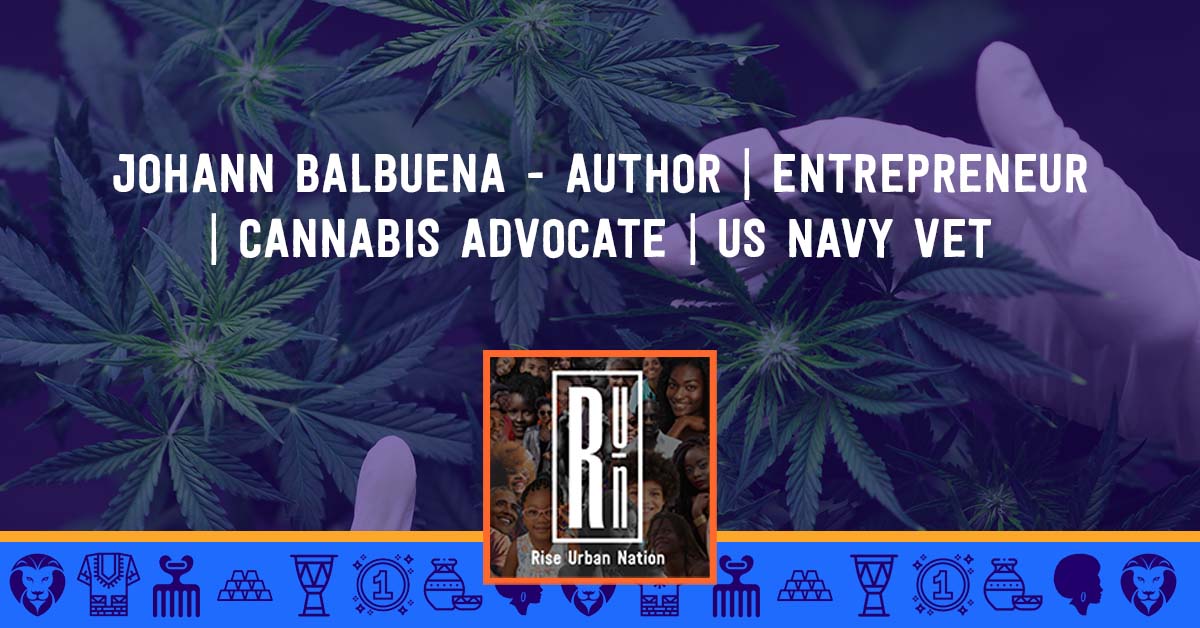
As the cannabis industry sees further legalization across the country, it continues to find hiccups in social equity. For Johann Balbuena, there’s a lot of work needed to be done for the Black community in this regard. In this episode, she talks about her advocacy as the Founder of Synergy, a cannabis consultancy and full service media production, distribution, product integration, and content marketing organization. Johann explains how she personally experienced the healing benefits of cannabis after suffering a concussion, and why it must be a driving force in rebuilding communities. She also looks back on her past jobs, emphasizing the hard work needed to achieve a fulfilling success and a strong leadership mindset.
We are currently surveying our listeners (or viewers) to learn more about you. Please take a few minutes and visit our website and click on the 'Listener Survey' link found on the home page. Thank you."
http://survey.podtrac.com/start-survey.aspx?pubid=ON_VODqpc104&ver=short
---
Listen to the podcast here:
Johann Balbuena - Author | Entrepreneur | Cannabis Advocate | US Navy Vet
In this interview, the person that I’m going to introduce you to is Johann. The funny thing about this story, when I first started doing interviews, I was on a prep call and it started getting good. I was like, “Let me record some of this. Maybe I can insert some of it into the interview.” This is the first time I got to see her in person.
I have been on a phone call with her in a meeting and I didn’t know that I had been on that meeting phone call until halfway through the interview. It was so embarrassing not realizing, “This person seems familiar. I’m not sure if I have met them before,” or what the case was but I ended up figuring it out as we got further along in that conversation.
Johann is the Founder and CEO of Synergy, commercial cannabis licensing, acquisition, and compliance agency. She is an expert in that space. She is the bestselling author of The Successful Canna-preneur book. She is a US Navy veteran, a cannabis advocate, and an entrepreneur. She has a testimony to this. Cannabis has helped her life tremendously. She wanted to educate and I got a good education lesson from her.
From hearing her story and other people who are in the cannabis space, I often think of being an entrepreneur in that space. I give a shout-out to them because it takes amazing grit and creativity to be successful in that space. You always have to be evolving. It is a great conversation with her. I can’t wait for you guys to dive in and read about some of her journeys, tips, practices, and theories to life. Also, get this education lesson on cannabis and the great, many attributes that it could have to our world and society, without further ado, Johann.
---
I want people to see more of us doing and creating dope things.
Creating more than music, playing basketball, or handling a ball.
That’s what this is all about and highlighting different people who are entrepreneurs, creators in different spaces and community leaders. We are sharing your story, career journey, how you define success for you, and anything that you have to offer the community. I’m trying to connect the Black community and African community in the diaspora because there is a lot of disconnects there. What Sola introduced me to is there is a whole slew of rich Nigerians who would be willing to invest in Black entrepreneurship. Why can’t we get these two worlds together and stretch the Black dollar outside of the US, make it international and create our own thing?
We create our own table and invite ourselves to come to sit at it as opposed to barking to have a place at a table that is already saturated, number one, and doesn’t cater to our communities. Even if they were not as impactful as it would be coming from within, from us, and creating that solid foundation for all of us to step on and keep building from there.
It is a beautiful thing to know that that energy is out there and people like yourself, myself, and Sola are a whole movement right now. It is overdue and super inspiring. This is the spark that we needed to push forward, break those generational curses, things that have been holding us back, and honestly, do things differently.
I’m not trying to say that we are doing the wrong things but for instance, we can’t continue to march, ask and request. We need to do a different approach from building ourselves. Let’s start building and see what we attract in the process of building to help build as opposed to asking for somebody’s sympathy, understand why they should not say certain things, and why your company should induce. We need to start building our own companies and modeling, “How we are doing it here, this is how you should be doing it.”
That creates a more groundbreaking situation that eliminates having to ask. It is like, “No. This is how you do it. Here is the blueprint either follow it or get out my way.” That is what’s happening now. We are tired of asking and it is a generational thing. Now we are like, “If we can do something with a stick and some mud here, then we are starting there.” That is what has gotten our people inspired to like, “That person is doing it. I can do it.” If your daughter behind you sees what you are doing, imagine what she is going to do. Can you imagine?
She is going to be a trailblazer. I’m letting her know. We are watching inaugurations and that young lady that stepped on the podium and gave that poem had me crying. I was like, “You could be anything. Do you see that? Don’t let these White men or whoever tell you that you can’t be anything. You could be anything. Don’t let him do it to you.”
Let her know, “They are not doing it to you. If you are allowing that narrative to become the reality, that is what stops us.” Nobody is here telling you and me what to do or don’t do. We listen and we have seen all these images that come in our heads that we consume. That is what we see like, “I don’t see anybody in the Science lab, TV, the newspaper, or in the history books that look like me. That is not something that I can do now. I see the janitor, so maybe that is all I can do.”
That is not necessarily a reality. It is something that you accept because you are not seeing it in real life. It is a beautiful thing that now our children are able to see it on their screens, which is, unfortunately, where they usually have most of their eyes. That is where we need to plug ourselves in that channel. Here we are. We are Black, beautiful, smart, and geniuses.
We are a lot of things. I got to all these different countries like the US to get out of this mindset that the Black culture is a monolith. Just because we see one aspect of it, that is the whole group. That is them. No. We are a lot of different things.
What a time to be alive. That is what I like to say.
Sola never told me about you as a businesswoman and what you created. Tell me more about this thing.
Wasn’t it you that we were on the phone where we were talking about the political aspect of cannabis?
Yeah. The structure of your business, what is it?
The Black community has created their own table and invited themselves to sit as opposed to barking to have a place at an already saturated table.
My business has two parts. One is the licensing, acquisition, and compliance management for companies that are operating in the regulated space. The other one is a media production and content marketing. We create content for the cannabis space. It is my own content that I pretty much film and direct. We have the brands that give us content to put through the channels that we have.
I started in this space in 2014. I got out of the military, and I was dealing with PTSD and all of that. Somebody introduced me to cannabis as medicine which I had no idea was a thing until I felt the immediate benefits when I did it for the first time. I was like, “Why is this illegal?” The stuff that the VA is trying to do with me in a year solved in twenty minutes. I went down that rabbit hole.
What problem did it help solve for you?
When I was in the military, I was in an accident. I had a concussion from that. I was blown by a jet blast while I was working on the flight of an aircraft carrier. That created issues for me like trouble sleeping. I slept in intervals of 45 minutes for three years. You can imagine the level of tension that I had. My body pretty much forgot to eat. I didn’t eat. I had to set alarms to eat because that was not a thing that was being processed.
Now that you know I’m Dominican. On the day of the accident, I lost the English language for almost half an hour. I could not process the English language. If you were talking to me and telling me what to do, I could understand it but I could not speak it. You can only imagine the fog that I was in at that moment besides the pain. That happened in my second year in the military.
For two years, I was dealing with a lack of sleep. I was drinking NyQuil to fall asleep. I was downing NyQuil. A lot of people drink alcohol. I hate alcohol. It tastes like crap. NyQuil tastes like crap, too, but I figured it was better for my liver. These are the things that I’m selling myself trying to deal with the situation. When I got out, I no longer had that fast-paced military life. Things slowed all the way down. I went on a downward spiral with depression, anxiety, and the stance type of living situation.
One day, another veteran came and was like, “You should smoke this joint with me.” I’m like, “No. I don’t do drugs.” He was like, “Please, come. You need to. I sense your energy. It is super tense. Let’s smoke this joint together.” Within ten minutes of smoking, for the first time in three years, I felt like myself. Essentially, I was like, “That is it.” I’m in my mind, I’m like, “That is me right here. I feel well right now.” I didn’t feel that tension in my neck. I was waiting to exhale and I got that breath.
From that moment, I asked him, “What is in this?” I had no idea. I was completely ignorant to the fact that it was the plant that people could grow and all of that. I started educating myself. Within that journey, when I started reading about the medical benefits, I had been living in California for years and I didn’t even know that it was legal for medical purposes at that point. I went to a dispensary for the first time and my mind was blown.
At that point, I already understood the medical benefits. I experienced it in my own skin. I wrote a book about this. I realized that when I went to the dispensary, all the people that were there, the diversity, White people, Mexican people, and Black people. For me, I always associated it with being a lazy person. It is the narrative, or whatever the case, that your brain cells would die and all that other BS that is not real.
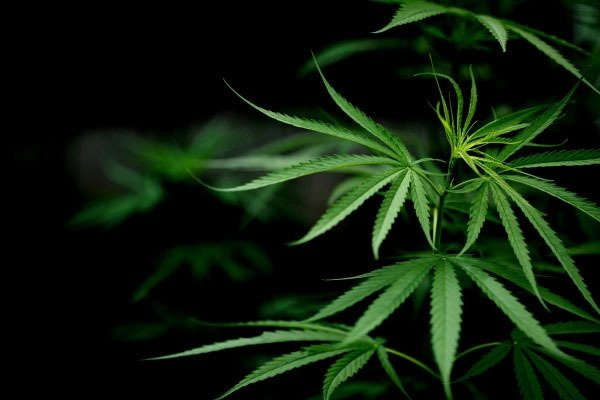
When I’m there at the dispensary, I’m thinking, “Not only does this help people. There is a high demand for it.” I was like, “I’m going to look into how to get into this industry.” I kid you not, from that day, maybe three months later, I randomly met somebody who was transitioning into the legal space. I asked them, “Can I quit my job to work for you? I don’t care if you can pay me. Pay me when you can.” He said, “Okay,” and the rest is history.
That is how you broke into the industry.
That is how it happened. Essentially, I helped that guy get the first Black-owned cultivation license here in San Diego County. At that point, it was ban to grow in San Diego. This guy that I was working with is super smart. He was like, “How can we do this legally and claim that we are the only ones doing it?” He went and pitched it to a tribe here in Santa Ysabel, in the Julian area. They were like, “Let’s do it.” We grew some beautiful flowers over there back in 2016 when they had banned it here in San Diego. We did it legally and we were able to claim that. It is Black-owned, and most people don’t even know that.
It is no social equity or no social equity application. It is nothing. It is us getting our brains together, talking to the right people and getting the right systems in place to get it done. It is also thinking creatively outside of the box because everybody was, “We can’t grow legal,” so everybody gave up. We stayed looking because he was so fixated on making sure it was a legal situation because he wanted to raise capital and even take the company public at some point. That is how you sit there, try to think outside of the box and make magic happen sometimes.
That is the beauty of our people. We find a way to make things happen. We get creative even in the direst situations. We are the only people I know that could turn Top Ramen into a gourmet dish.
---
My project was at first to bring career professional development to the Black and Brown community to elevate us and it is evolved ever since then and now. This show is an evolution of that.
I’m thankful to be here. Thanks for inviting me.
Welcome to another episode. We started our session on a previous day but when you got to get a session going. You don’t stop.
You keep it going.
We are going to get back into this conversation that we started. I want to double back a little bit to talk about your career journey because you have been in the military and out of the military. Usually, people have a hard time transitioning out of the military. Tell me how your career journey was for the readers.
I graduated college and joined the military. They paid for my student loans so that was one of the reasons why I wanted to join. Essentially, if I’m completely transparent, I have always wanted to join the Navy since I was a kid. It was on my bucket list. When I was a kid, I still have pictures of this little sailor suit that my mom bought me. I always used to say, “I’m going to be a sailor.” This is when I lived in the Dominican Republic because I was born over there. I was always intrigued by that so I did join.
Focus more on the process of building than simply asking somebody for sympathy.
They pay my student loans. While I was there, I had an accident from which I had a concussion and it created a whole bunch of problems. Mentally, I was forgetting to eat, not sleeping, and had a horrible sleeping pattern. I never slept for more than 45 minutes. Every 45 minutes, I kept waking up and being up for an hour until I fell asleep again. It was a horrible situation. I did two deployments. When I got out was when I realized that there was a problem. When the Navy lifestyle completely slowed down, that is when I realized, “Am I going to live this the rest of my life?”
That is when I got out of the Navy and I started working for the Navy as a civilian while I met an individual randomly after I had already tried cannabis for medical purposes. A friend brought it to my house one time and said, “Smoke this joint. You look a little tense.” It was a game-changer. Essentially, I was like, “Why is this illegal?”
I have smoked weed a few times in college but the weed made me sleepy. You know how when you are at a party, you smoke a little, and you are like, “I’m leaving.” I was never into it. I might have always wondered, “Why don’t people smoke this at parties? Do you want to fall asleep?” It was different and that was in Pennsylvania because I went to school at the University of Scranton in Pennsylvania. Once I tried it, I became so intrigued by it. You started using it as a patient. Back in 2014, in California, it was medical only, which they had been since 1996 and I had no clue because I was in the military.
I did not know that.
It was passed for medical purposes in 1996. Essentially, 2018 was when it became legal for adult use.
Correct me if I’m wrong, at the Federal level, it is still illegal.
This is a Schedule 1 substance at the Federal level. In almost every state right now, there are 44 states that have legalized it for medical purposes only, and now fourteen have legalized it for adult use.
It is about time that we had the Federal level catch up.
That is in the works. I was reading an article that said that we have the Democratic Party as the majority in our government right now. I don’t know if you know this, but the VP Kamala Harris is championing what is called the MORE Act, the Marijuana Opportunity Reinvestment and Expungement Act. She is championing legalization for cannabis at a Federal level, including social equity aspects in there and expungement of records for people. Personally, we have never been this close to legalization as we are now. It is a great time to be a part of the industry right now.
That is a game-changer right there. Could you imagine all of our people who have been locked up because of possession or usage of Marijuana coming back up?
Over 80% of the people that are incarcerated for cannabis are not for illicit commercial situations for cannabis. It is not for selling.
Is it for recreation?
It is for consumption, having possession of a certain amount or consuming in public or something like that.
I thought it was a bit more of those people who were holding mass amounts and distributing.
There are people in jail for one joint. Mostly, they look like you and me, in towns where the majority of the people there who are arrested for cannabis are probably considered troublemakers or something like that for the use of cannabis. Essentially, once I tried cannabis and did my research, I realized that it was a huge industry in the making.
When I went to the dispensary the first time, I was in there for twenty minutes, there were over twenty people that I counted from when I got there in the parking lot. It is people who were in line getting checked in because at that point, if you have a medical card, you have got checked in and they take your information, verify your card, or whatever the case may be.
I see people coming in and out, and I’m like, “I didn’t realize how much people are into this.” In Jersey, it is taboo, but in California, because they had been medically accepted since 1996, it is a normal thing. I took the first opportunity when I met somebody that was in the industry. The one thing that he kept mentioning was he was in the legal space. I’m like, “I need to know what the difference is.”
I started looking into that and I asked him, “Can I work for you? I am super interested. This plant has healed me.” I want to bring this message because most of the people that are criminalized for being a consumer look like me. I was like, “I want to make sure that Black and Brown people are educated about not only the benefits of using it for medical situations but also do not miss out on getting into this new industry that has so much potential. It is a multibillion-dollar industry at a global level and there are only five with Mexico and countries that have legalized it.”
I didn’t know Mexico legalized it.
They had decriminalized it back in 2008. Don’t quote me on how much you could have but you were able to have a personal amount on yourself. I don’t remember if it was an ounce or something like that. They fully legalized it.
That means that Mexico’s economy might start booming if they started growing this.
That is if they get into the industrial hemp aspect of it, where it is not for consumption, it is for industrial products like paper, plastic, textiles, and biofuels. You can do so much with the fiber of the hemp plant, which is pretty much the sister of the cannabis plant, except that it is grown for fiber and not for consumption.
Don’t quote me. I might be wrong. A lot of people in the 1800s back in the heyday, the US government relied on this hemp plant for all the usage of its papers, textiles, and to create the rope for the military that had the strongest durability. A lot of things that the military used came from hemp. They decided to ban it because it was too close to marijuana for whatever reasons.
They were so confused as to what the difference was. Back in the day, it was not that distinguishable because they looked so similar so they piled it up in one, which is stupid because it was a racial situation. Cannabis prohibition started because the Mexicans, Japanese, and Blacks were the ones using it. They started a campaign saying that these people smoke marijuana and rape our women or think they are better than us or something like that.
I remember that. That is around the Reagan era, the War on Drugs.
In the 1930s, they started criminalizing it. Instead of criminalizing, they required that you report that you grew it. Essentially, that is where the racial aspect was because, at that point, it was mostly Mexicans and people of color growing cannabis that has the high THC that you would use for adult use or whatever.
What they did was implement these laws that you have to put yourself on the list that you were doing that or growing that. Pretty much, it was incriminating yourself. They thought that there was a lawsuit against the Constitution to criminalize yourself, so they created later on the Schedule 1 substance situation.
Here we are. People are making so much money out of it. There are still people in jail, which will always be the elephant in the room for the world because it is not just America. America started that and the whole world followed except China. China did not follow including hemp in that whole situation. This whole time where cannabis has been illegal worldwide, in China, hemp is a useful product. China has been supplying hemp to the whole world while the whole world decided to shut it down completely.
China will be running the whole world, I swear. The US government does such a good job at stigmatizing this product that this plant is so good for us. There are so many benefits even from the sister plant, hemp. If you were the plant and soil, it enriches the soil. It also helps clean out the ozone layer. You could rotate your crops with that. Take the hemp plant out and put some new crops in there.
How can you stop that? It doesn’t make any sense.
What is the biggest thing we need to do to educate the general public to destigmatize how we look at this plant, all the good benefits and usage?
That is why I started my company, Synergy. I started helping cannabis operators that were looking to get into the legal space get their license here in the State of California. That is where I noticed that there is so much stigma not only in the consumption aspect but even in doing business in places that are legal. I realized education and people seeing these images are so important, especially for people of color representation.
Me having this conversation with somebody that has been in the space since 2014, I went through the legal-only market in San Diego. I have worked on ordinances creations in tribal land and now working in the adult-use market. In having this conversation with you to see all that knowledge that you have about hemp, from my company Synergy, then started a media production aspect branch where that is what we do. We create content for the space showing the truth about it.
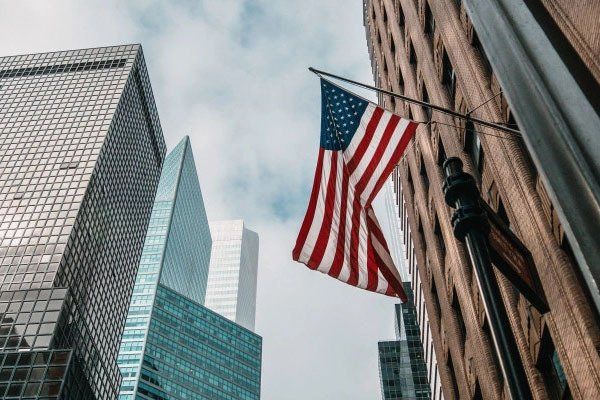
That is a good way to put it. I worked in my high school. I was good at Math. I was a Math tutor in high school so this was my first job. I didn’t see it as a job because I was usually helping my classmates with the same homework we had. I worked outside of that setting, which was not necessarily a real employment type of situation. My first job was working at Hollywood Video at a video rental. Kids will never know.
I remember Hollywood Video. It is around the same time as Blockbuster.
I had one two blocks away from my house. That was a summer job. It was my junior year in high school and I was in AP classes so I had a hardcore schedule at home, but I liked making money. Because my parents are both entrepreneurs, I have never seen my parents working for someone else but I didn’t see how I could do that besides selling fruits in the streets. In America, that would not have been acceptable for a child.
They would be like, “Who’s kid is this?”
In any case, the first time that I came home, past midnight from my job, my mom was like, “You cannot do that. You have to be in bed by at least 10:30 and be in class.” I had to quit, not because I wanted to. I thought I could do it but my parents did not allow it.
My dad was the same way. He was a stickler about education before anything else. That is usually how immigrant parents are. They would see education as the way out for the kids, even if they didn’t take that.
My dad graduated fifth grade. He started working construction when he was 11 or 12 in the Dominican Republic. From there, he ultimately ended up owning a construction business. My mom graduated high school, but she started working at a beauty salon at sixteen. By the time she graduated high school, she had bought it herself. She still owns the property to this day.
That is the type of environment that I saw growing. That is why once I graduated college and entered the workforce, it didn’t resonate with me. Every time I woke up, I had to convince myself to go to work. I hated it. I was like, “I would rather be in the military. At least I wanted to do that.” When I found out that they would pay for your student loans, it was a no-brainer, so I joined.
I could see that in you because he has that entrepreneurial spirit. A 9:00 to 5:00 would not be best suited for your gifts and talents. What lessons would you say that you carry on to this day that you have learned from your first jobs and entrepreneurial journeys?
Let me tell you how that started. I was in school and I would see this one friend of mine who would sell stickers. Her parents would buy her stickers and whoever wanted one from her, she would sell it. I’m like, “Can we make money like that?” I was at home thinking about what I could sell. I’m thinking about toys, but I’m like, “I like them. I’m not selling those. People sell fruit. Let me go fruit picking.”
Essentially, what I learned from there was creativity is key. You can get creative to solve any problem you can get. If you are stuck, you have to think outside the box. In 2016, San Diego had put out an ordinance so people could apply for a cultivation license and a retail license. When the city council switched in the county, those people did away with those ordinances and the licenses that were already in place. Only the retail licenses were allowed to continue.
Cultivation was banned and the individuals that I was working with were like, “How can we do this?” We started brainstorming to see how we could do it and we are like, “Where do they have no jurisdiction but it is still here?” Tribal lands. I went in, pitched it, and it worked. We had a cultivation site and were able to feed the retail that was approved, which for that retail, they have put a moratorium, which means that they only allowed us to work for five years. I want to send a quick shout-out to San Diego County because they did away with that. They voted to open up non-unincorporated areas in San Diego that are looking to create ordinances and implement cannabis programs. That is going to be a thing now. I’m super excited for the future.
I see that creativity and thinking outside the box. Indian lands are unincorporated. They are part of this jurisdiction and we can plant here. I like how your mind works.
I was talking to them, having the conversation. Usually, that is all you have to do, “This is what I’m thinking here. This is how this can help you and us at the same time.” We help them create their ordinance. We are not there anymore but to this day, they still have people cultivating in greenhouses and indoors in the Santa Ysabel tribal land.
What would you say were the steps that you took into your career, industry, and field? Yours was a journey but let’s say somebody is reading this and they are all inspired by it. They are like, “CBD cannabis has helped me too in my life. I want to get into this business.” What would you say were the steps that you took to get into this business?
I did write a book about my journey, my train of thought, the mindset that I had in getting involved in this space, and how to be successful, which involves a lot of getting creative in a space that is so dynamic where laws change like this. We went through that whole San Diego ban and cultivation but we still cultivate it legally, without having to get in trouble.
My book is called The Successful Canna-preneur. I depict it before I joined the Navy up until the Coronavirus struck. I’m talking about how we pivot for certain things and the mindset that we had in order to not allow such circumstances that perhaps could have ended the business. Also, take us under and rise above that by thinking creatively in all aspects financially, strategically, and executing. My book is The Successful Canna-preneur. It is available on Amazon.
Be consistent, persistent, and relentless in your pursuit of a particular goal, even if everybody is against it.
You are already an entrepreneur so you already know how to sell it. I appreciate you. What is one good lesson life has taught you in this journey?
I have learned so many lessons. 2020 was lesson after lesson, but the one lesson I would say that always stands out is never giving up. You have to be relentless in your pursuit, particularly in the cannabis space where things can be here and gone away tomorrow because of the law. The powers may have decided something. Using your intellect creatively and being persistent, consistent, and relentless in your pursuit is the key.
That is a gem right there.
Be consistent and relentless in your pursuit of what you want to accomplish. Number one, you have to know. You have to be specific with your goal and your objective. What do you want to do? I talk about this in the book because my book is not necessarily so much about giving you information about the cannabis space.
I have a whole chapter for the mindset aspect of it. This is what I talk about. You have to learn how to follow your instincts. You have to be specific in your approach. Where are you going? You can’t say, “I’m going to go somewhere,” because clearly, there won’t be a path that you would be carving. You would be all over the place.
Being consistent, persistent, and relentless in your pursuit of that particular goal which ultimately should be the wholehearted fulfillment of your purpose and pursuing that. Every time somebody tells you no, everybody is against it, or whatever the case may be, that is a sign for you to question, not question because they are saying but it is an opportunity for you to understand even more. Either more things that you should do more of or things that you should do less of in order to get you places.
There is a quote by somebody, and I can never remember who said it but they say that life is a bunch of experiments. You learn to do more of what works that pushes you forward and less of the things that keep you either stuck or put you steps back. The key is identifying when you are stuck because you keep doing the same thing. Essentially, once you change something in that equation, you are either going to know what was wrong there, stop doing it, and do whatever is going to push you forward or whatever it was that is keeping you back. It is a bunch of experiments.
Looking at it from that perspective and not seeing it as, “My life sucks. I’m stuck.” That is the opportunity for you to identify what it is that you have been doing wrong there. It is an experiment and there is an experiment where you keep putting ingredients there that keeps you stuck. Change the formula and you will see something else is going to happen and take you somewhere further.
I love that you like to use food analogies like me. I love food, too. Two key things that you mentioned in there that are on par with some of the things I like to teach. Setting SMART goals where we got to be specific about what that is. We also talked a little bit about mindset. You tapped into that a little bit. It was using every no or hurdle as the opportunity to seek, whether it be the truth or our answer to something. It is an opportunity to find what is hindering that person from moving forward.
That advice is crucially needed for somebody who is going to enter the space and the cannabis industry because of how everything is always evolving and changing. As far as speaking to the mindset and the reflectiveness before somebody jumps into this career space, what is some advice you would give someone who would like to start a career in your industry? What do they need to mentally prepare for?
They are excited. They see all the glitz and glam because everybody sees some people making money but not everybody makes it down the road. Some people quit at an early stage or gracefully bow out for whatever reasons. What is something that helps them reflect and get them in the mindset to say, “I need to reflect on this to see if this is the industry for me?”
The key is your why, the purpose of what you are doing. This is going to be the hardest thing you have ever done. Even in my book, the person that I asked, “Can I quit my job to work for you?” He said, “You can.” As he is sparking up his blunt, he tells me. “Yes, but this is the hardest thing you will ever do. I’m telling you right now.” I’m like, “I was in the military. I worked on the flight deck of an aircraft carrier, did two deployments, had a concussion, and went back to work until I realized I could not speak English from the concussion. I’m probably the strongest person you have ever met.” He was not lying.
I remember two years into it, especially back then running a business with your hands tied to the bag. How do you even do that? It is getting creative but my why is that I want to educate people of color on this subject matter and not just about consumption but about the opportunities in the space that can help us as a community create a new economy, where we can be completely independent.
We can do this without social equity situations because honestly, the way that I see that is putting us in another line, “Don’t go to this line. Go to this one.” That line only has 5 spots but there are 20 people ahead of you. In the license that I was able to get here in San Diego, since licensing became a thing back in 2016, none of them had anything to do with social equity or anything like that. The process was way faster because you go through the process with everyone else.
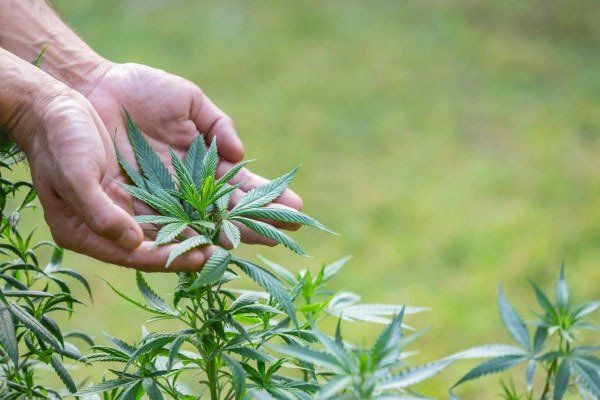
Is social equity super important? One hundred percent. That needs to be emphasized not in the application process. It needs to be emphasized in the ordinance in the implementation of the cannabis program from within the system. I even talked about it in the book is like the government created this program and this disparity. We are expecting them to create the solution. It is a little bit counterproductive, in my opinion, because clearly, they can’t even get a right. They created the problem and haven’t ever thought they would have to solve it, so they are scrambling.
As businesses and operators, it is going to take us to incorporate that in the culture and doing business in cannabis. That is the way that I approach it in this space but your why needs to be that strong. It is bigger than me. I’m not doing this to get financial gain, and I am. It is a business but if that was the sole reason, I would have been in another industry a long time ago.
You could make money anywhere, honestly, especially if you grew up in a family full of entrepreneurs. I tell people that all the time. Your why and what you do has to be so strong that you will do whatever it takes.
I need this like oxygen. If your why is not strong when things get tough, you are going to throw your hands up and quit, fold, or you want to do something else. In cannabis, you have to make it a point to educate yourself and be informed. In this space, you have to be an entrepreneur because you have to advocate for the plan and the people that have been affected mostly by cannabis prohibition on the War on Drugs.
You have to educate individuals about the history and the fact that this is not a gentle plan. Nobody is going to die from this. People will get benefits. We have an endocannabinoid system that is meant to process the cannabinoids in the cannabis plant. You have to educate, advocate and know your business aspect of it. That is my recommendation. Get my book so you can learn it in a little more detail.
What do you think the future has in store for this industry?
The future will seem a little bit further prior to 2020. Because of the pandemic and COVID, the cannabis industry is pretty much stuck out. People consume even more when this happens and it is only natural. Usually, people consume cannabis to tone down the anxiety, mental health issues, relax, take the edge off, and things of that nature.
You hear people when they indulge in that. Besides people with cancer and people with other things like children and autism where they use CBD, the consumption of cannabis went through the roof at least in the first three months of the pandemic. Cannabis proved to be a pandemic-proof and recession-proof industry that can keep some of these cities that had the industries. We are keeping those cities afloat and completely eradicated. The cities that had cannabis ordinances are here in California and even in other legal states were able to latch on to that stream of income, which was brand new.
If they had not approved cannabis the year before or years before that, that would have been money that they would not have access to. That happened a lot. That is why in the election, the real winner was cannabis. Every single initiative that was on the ballots passed. The future is bright. Mexico legalized. Canada has been illegal since 2018, so now we have America in the middle of this.
Put your hands up, “How come everybody around us is making money off this except for us?”
Until America does not do right by the people and the prohibition is affected until there are people in jail for cannabis, the industry will not be legitimized as it should. There are steps and levels to this, and one of them is to create situations that would mend or heal those cannabis prohibition costs.
We are on the horizon. America has a hard time looking at its true history, coming to terms with it, and righting the wrongs that have been done.
Righting the wrongs means admitting that you did something wrong. If we look at the circumstances, because this is with cannabis and I talk about this in the book, you would think that people went to jail for selling drugs or things like that. No. Families were destroyed. Do you know how many kids grew up in a family where a parent went to jail for an ounce of pot? Right now, it is normal to carry that in the person.
It is not for a few months or not probation. That is a Federal crime so somebody did time for that. Somebody is still doing time for them. The social equity aspect to me goes beyond handing licenses to people. Let me explain it a little bit in detail. The licenses are limited. Here in Chula Vista, there are 8 licenses for retail and 8 licenses for manufacturing.
Let’s say you have a total of 40 licenses. That means only 40. Maybe people are partners or 80 people will have access to have the licenses. If you count the amount of people that were affected and arrested by the situation, that would be social equity cannabis, and it is going to be way more than 80. How are you going to mend something with something that costs so much turmoil with 1 or 2 licenses that you dedicate for social equity? That is where my concern goes.
That number needs to rise.
Essentially, you can’t have a dispensary in every corner. That is not going to happen because the zoning restricts the number of locations that you can get. That is how it is for businesses. There are liquor stores everywhere, and perhaps we can have a dispensary. As it stands right now, they want you to be X amount of feet away from schools, churches, this, and that. In those circumstances, you create a limited amount of licenses that you can hand out. You take 3% of those and that is what you dedicate to social equity.
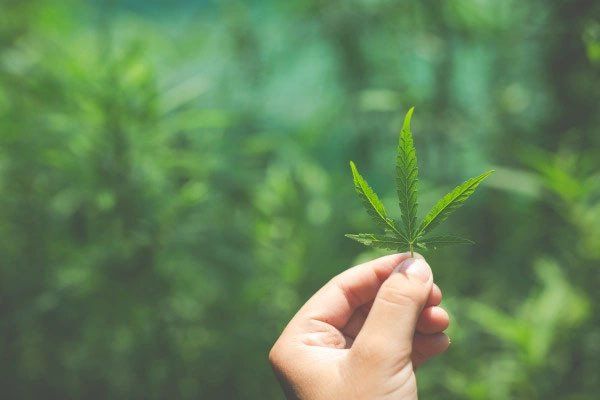
There is another component that we probably may be missing here too. It is how the lottery system gives a certain percentage of money back to the schools in different districts. Maybe in the cannabis space, certain taxes, and a percentage of that goes back to the revitalization and rebuilding of those communities destroyed by this.
I talked about that in the book. That is where the government’s direction should be. That is what they should be doing. In California alone, the operator pays 40% in taxes, sometimes more. With all that money, the taxation should go back into these communities, with specific programs that are created and you can account. Do you know how they track the cannabis from seed to sale? They need to track that money after the sale from inception at the locations, whether the dispensaries or the manufacturers and track it until it helps the community. It is like, “This money went from here to here and this is how we are undoing all these situations of the prohibition costs.”
We can say, “That money that you make from there, you can’t put it into other pots for all of society.” This particular pot is strictly for these communities that were affected by it. We have got puns all in here. It has been a powerful interview. We could go on for hours. Let’s wrap it up with this. What projects are you working on and where can people find you?
Please visit our website, SynergyUniverse.io. We are working on pretty much what we talked about, like creating cannabis content that reels people into understanding, not just the plant from a scientific aspect but from the business aspect and the potential for the medical. It is gathering a library of content that is educational.
The intention is for people to identify opportunities in the space, see how they can contribute to that, and make it a more open market for people to come in based on what they are into, their purpose, the things that perhaps cannabis has helped them with, and how they can take it further, also, from people that look like them, normal people. It is inclusive for everybody because there are so many people of color all over America doing so much work to push this agenda forward for the criminalization, advocacy, and science aspect of it. We have to be at the forefront.
That is the only way that they believe social equity would take place. If we take the initiative to claim a stake in the space, we have a voice in that and that is what we are doing with Synergy Universe. We are collecting thought leaders who are looking to create content based on their knowledge and getting that production done. Also, I do have a studio here in Chula Vista. Hit me up if you need constant creation services. We provide that through Synergy Studios. Check out our lifestyle brand, Boycott Shitty Weed.
Let me talk a little bit about that before I go. On Instagram, it is @BoycottShittyWeed. Boycott Shitty Weed is a movement that we have started that focuses on the fact that high quality and cannabis are important. It is an understanding of where the plant comes from. It can be contaminated because it has to be tested. When using pesticides, those kinds of things can affect your body not in a good way a lot of the time, so it is important to keep quality in mind in your consumption aspect.
Also, the fact that if there are cannabis companies out there that don’t do anything to pursue social equity and inclusion or social justice, to me, that is shitty weed as well. It is not just about consumption and quality. That is important but also understanding what you are consuming if it is not supporting your community and why you are even doing that. That is what Boycott Shitty Weed is about, so please check us out.
I love every aspect of that. I’m glad you came up with this lifestyle brand. Make sure you boycott your shitty weed. It is a lifestyle and a movement. I didn’t even know you could get it. What you told me is that you could get organic weed.
This came from a bad experience that I had. Before I started working in this space, a friend of mine brought something that he bought. I don’t know where he got it from. Essentially, the thing ended up being contaminated with pesticides and the experience was we almost hallucinated. Honestly, with cannabis, there is no hallucination. That is not a side effect of cannabis. I wish I had recorded that because it has so many pesticides in it that I was like, “I was smoking pesticides.” In regulated space, testing is extreme. They tested almost at every level.
That is the one thing I would say in the regulated space. You can track. If you have an edible and that edible causes you to feel some type of way, in the regulated space, they can track it all the way to the plant that it came from. That is a good thing. In the regulated space. They are still working out a lot of kinks but that is one thing that is important, especially for people that are starting out.
One more thing before we wrap up, I realized that we didn’t talk about edibles. What does this industry look like? You can give me your two-minute riff.
In that industry, there are so many chefs cooking with cannabis. It is a beautiful thing in the sense that a lot of people are entering the industry in that manner. You are now using cannabis oils and cannabis-derived extracts or the leaves and incorporate it because the importance of the consumption is that you don’t have to smoke it.
To me, the fact that there is an edibles market, it is a point of education because a lot of people are like, “Smoking is bad for you. It doesn’t matter.” This is the thing that you don’t have to smoke. You can consume it in a patch or like gum, mint, or gummies. I have had medicated Doritos. They have everything. I had an entire medicated turkey burger.
You can even make it into butter. You can make it into an oil that you use in your dips and things like that. It is so versatile. I’m glad you brought that up because that is usually a point of education. The edibles market is huge for the people that don’t like smoking which is a lot of people. In the edibles market, the gummies are one of the number one selling items in cannabis. People don’t have to smoke. You can consume it.
You are telling us to boycott shitty weed. Is your company going to ever give us a list of companies we should be supporting as far as edibles and so forth?
Life is just a bunch of experiments. You learn to do more of what works that pushes you forward and less of the things that keep you stuck.
We are working on that. We are going to create a listing and rank companies as far as their inclusion of diversity, their initiatives of social equity, and social justice, specifically for locations like Los Angeles where they are the epicenter of cannabis prohibition criminalization. Because there are already laws in place and a lot of cannabis companies are involved and up and running, then we expect you, as a business, to take it upon yourself to mend that community. Not only are we going to be ranking the organizations, but we are also going to be ranking the cities and their initiatives because it starts there. They are setting up these businesses for failure. We can’t. It starts with the regulation. If the regulation is crappy, what do you think is going to happen thereafter?
I get the progress you are looking for. When you compile that list, I want to put it on our site and I want to invite you back for a conversation so we can educate the public.
Those are the initiatives we have going on. Taryell, I want to thank you so much for having me. I told you that I’m not a morning person but this was so pleasant. I’m super appreciative.
It was. Johann, I appreciate you. I’m not a morning person either but this is as good as my cup of coffee. That has been another episode. We will come back for another educational episode after we break these companies, these cities, and see who is about this life.
Thank you so much.
You are welcome.
Important Links:
- Synergy
- The Successful Canna-preneur
- Synergy Studios
- Boycott Shitty Weed
- @BoycottShittyWeed – Instagram
- Amazon – The Succesful Canna-preneur
- Info@SynergyUniverse.io
- @CannabisSynergy - Twitter
- https://www.Facebook.com/Johann.Balbuena.Mendez
- @_JMBalbuena - Instagram
- @CannabisSynergy - Clubhouse
- http://LinkedIn.com/in/JohannBalbuena

